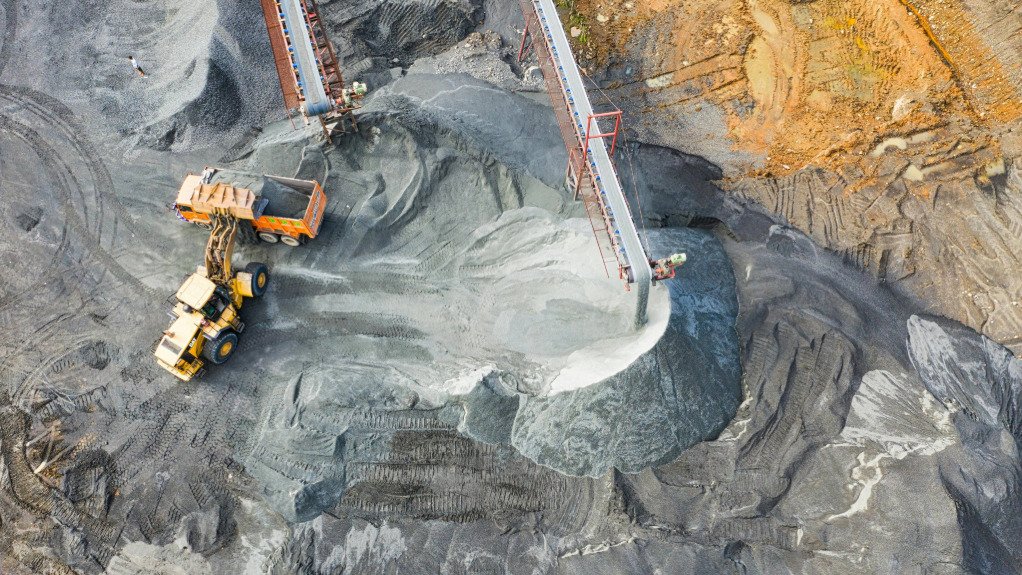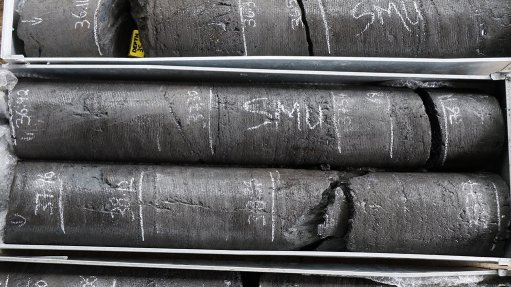Path pursued by African mining projects a complex one


AFRICAN EXPANSION The exploration and research efforts being aimed at the African market will see growth in the critical minerals sector but must be done with care
While many explorers and developers are looking to Africa for much of the mineral production to drive the global energy transition, a careful path must be followed before these projects can deliver, reports engineering and scientific consultancy SRK Consulting.
According to management and investment centre the African Natural Resources Centre, about a third of the world’s mineral resources are to be found in Africa, highlighting the continent’s expected focus on mineral development to underpin the journey towards a lower carbon future.
Multinational professional services firm PwC argues that miners will need to move into newer mining territories to find the volumes of cobalt, copper, lithium, manganese, platinum group metals and other minerals that future markets will demand.
“This means considerable opportunities for mineral-rich African countries, especially since mining is an important pioneer sector with significant transformative potential,” says SRK Consulting South Africa chairperson Vis Reddy.
He adds that it is important to remember that much is expected of the mining industry in the current climate, with such expectations – in many regions codified by laws and regulations – moving beyond simply reducing the negative impacts of mining.
The leading mining players have embraced a responsibility to actively contribute to socioeconomic prosperity in host countries and in the mining communities in which mines operate.
“This adds to the complexity of minerals exploration and development,” says Reddy.
In addition, this also adds to the timeframe from exploration to production, which is not what project developers want to hear, he says, especially when time is of the essence in meeting the demand curves predicted for the energy transition.
Overcoming Obstacles
On average, it could take a decade or more to progress a mining project from a mineral discovery to a producing mine, and longer if there are uncertainties in the legal and regulatory framework, notes SRK Consulting Congo chairperson Dominique Sambwa.
“There are some African countries where the mining sector could be pioneered almost from scratch,” he suggests, adding that this presents an exciting prospect for the nations concerned; but, for investors, it implies a number of uncertainties which complicate planning and evaluation.
Sambwa explains the challenges may range from infrastructure deficiencies to a lack of regulatory clarity, resulting in a considerable obligation on mineral explorers and mine developers, as they navigate a challenging working environment to facilitate progress.
“Compliance is not only measured in terms of legislation and professional standards in fields from geology to accounting,” he posits.
There are also stringent global frameworks adopted by project financiers, such as the Equator Principles and the Mining Principles of CEO-led leadership organisation International Council on Mining and Metals.
“There will also be expectations in terms of the UN’s Sustainable Development Goals and the Paris Agreement on climate change,” states Sambwa.
When looking for funding, listed companies will also face stringent conditions from stock exchanges.
Many of these conditions will relate not just to a developer’s technical studies and financial projections, but also to their environmental, social and governance (ESG) commitments, and implementation plans.
No Cutting Corners
There are seldom short-cuts when developing a mining project, even when all stakeholders are impatient for success, asserts SRK Consulting South Africa MD Andrew van Zyl.
“In our experience, the best way to ensure efficacy in mineral projects is to ensure that all aspects are correctly investigated and addressed the first time around,” he says, adding that this is really the only way to avoid unexpected delays, which often arise from insufficient foresight or sub-standard quality of work.
Van Zyl emphasises that the current mining environment demands a well-informed strategic approach for mineral ventures, from exploration and compliance, through to stakeholder engagement and post-closure planning.
“We would argue that to respond responsibly to the global economy’s demand for increased mineral production, industry players need to be technically focused, to achieve the necessary levels of empirical accuracy,” he says.
At the same time, Van Zyl notes that industry players need to take a broad view of all the impacts that a project will create; this in turn means engaging a variety of relevant skill sets, which must be well integrated to have the right result.
Further, the field of exploration, for example, is not just about geology, and currently, more than ever, this work must be conducted alongside engagements with local communities and a range of regulatory authorities. This work also needs to be preceded by social and environmental baseline studies, which require specialised local knowledge.
“Being part of a value chain that links directly with growing ESG concerns, critical mineral producers will be even more closely monitored in both the ethical and technical aspects of their operations,” concludes Van Zyl.
Article Enquiry
Email Article
Save Article
Feedback
To advertise email advertising@creamermedia.co.za or click here
Press Office
Announcements
What's On
Subscribe to improve your user experience...
Option 1 (equivalent of R125 a month):
Receive a weekly copy of Creamer Media's Engineering News & Mining Weekly magazine
(print copy for those in South Africa and e-magazine for those outside of South Africa)
Receive daily email newsletters
Access to full search results
Access archive of magazine back copies
Access to Projects in Progress
Access to ONE Research Report of your choice in PDF format
Option 2 (equivalent of R375 a month):
All benefits from Option 1
PLUS
Access to Creamer Media's Research Channel Africa for ALL Research Reports, in PDF format, on various industrial and mining sectors
including Electricity; Water; Energy Transition; Hydrogen; Roads, Rail and Ports; Coal; Gold; Platinum; Battery Metals; etc.
Already a subscriber?
Forgotten your password?
Receive weekly copy of Creamer Media's Engineering News & Mining Weekly magazine (print copy for those in South Africa and e-magazine for those outside of South Africa)
➕
Recieve daily email newsletters
➕
Access to full search results
➕
Access archive of magazine back copies
➕
Access to Projects in Progress
➕
Access to ONE Research Report of your choice in PDF format
RESEARCH CHANNEL AFRICA
R4500 (equivalent of R375 a month)
SUBSCRIBEAll benefits from Option 1
➕
Access to Creamer Media's Research Channel Africa for ALL Research Reports on various industrial and mining sectors, in PDF format, including on:
Electricity
➕
Water
➕
Energy Transition
➕
Hydrogen
➕
Roads, Rail and Ports
➕
Coal
➕
Gold
➕
Platinum
➕
Battery Metals
➕
etc.
Receive all benefits from Option 1 or Option 2 delivered to numerous people at your company
➕
Multiple User names and Passwords for simultaneous log-ins
➕
Intranet integration access to all in your organisation



















